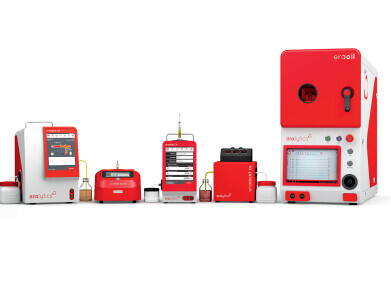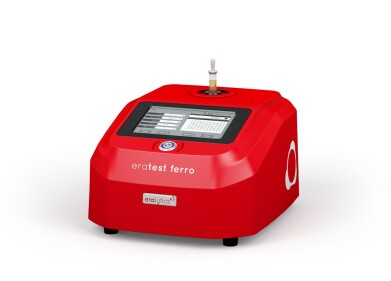Analytical Instrumentation
Could Human Waste Replace Conventional Fuels?
Dec 13 2018
With Britain set to ban sales of all new petrol and diesel vehicles by 2040, the need for alternative fuels is intensifying. Now, a team of scientists from Israel's Ben-Gurion University of the Negev (BGU) is claiming that human waste can be repurposed as an eco-friendly fuel.
The findings were published in the Journal of Cleaner Production and explain how the team used a pressure cooker to convert human excrement into a safe and reusable biomass fuel known as hydrochar. To do this they heated the waste at temperatures of up to 240°C for around two hours, a process called hydrothermal carbonisation (HTC). This dehydrated and sterilised the faeces to create combustible, nutrient-rich hydrochar. It resembles charcoal and according to the scientists is cheap, efficient and contrary to popular belief, safe.
“Human excreta are considered hazardous due to their potential to transmit disease," says Professor Amit Gross, study co-author. “While it is rich in organic matter, nutrients such as nitrogen, phosphorus and potassium, human waste also contains micropollutants from pharmaceuticals, which can lead to environmental problems if not disposed or re-used properly.”
Solving global health and energy issues
Across the globe, over 2 billion people don't have access to basic sanitation. As a result, almost 900 million people are forced to defecate in the open, without toilets or sewerage systems. Furthermore, many of these people use solid biomass like wood charcoal to cook and heat their homes, which has weighty carbon footprint. Hydrochar addresses both these problems by hygienically disposing of and treating human waste, as well as offering an alternate fuel to cook and heat homes.
"By treating human waste properly, we can address both of these issues [energy and waste] at once," asserts Professor Gross.
The research builds on a previous BGU study that focussed on waste from turkeys and other poultry. The best results were instigated by cooking faeces in a high temperature pressure cooker while wet. The team was so confident in the safety and hygiene of the process that the ultimate goal was to roast a turkey using hydrochar derived from the bird's waste, then eat it with zero inhibitions.
For a closer look at how new laws are changing the face of the fossil fuels industry don't miss 'Preparing for change: Positioning the Refining Industry to Tackle the IMO’s New Sulphur Regulations'
Digital Edition
PIN 25.1 Feb/March
March 2024
In This Edition Safety - The technology behind the ION Science Tiger XT - Safety with ammonia and LOHCs as hydrogen carriers Analytical Instrumentation - Discussion on new tribology te...
View all digital editions
Events
Apr 28 2024 Montreal, Quebec, Canada
Apr 30 2024 Birmingham, UK
May 03 2024 Seoul, South Korea
May 05 2024 Seville, Spain
May 06 2024 Riyadh, Saudi Arabia


















